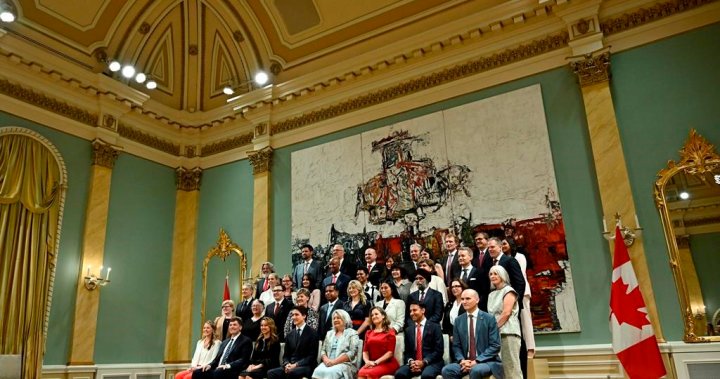With a reshuffling of the cabinet that includes the addition of seven new ministers and changes in roles for 23 members, Prime Minister Justin Trudeau has given his inner circle a fresh start. As we reach the halfway point of the current government mandate, important priorities are already in motion. Trudeau’s team is facing notable challenges, from addressing the high cost of living to safeguarding elections against foreign interference.
Former clerk of the Privy Council, Michael Wernick, compares a cabinet shuffle at this stage to passing the baton in a relay race. He explains that some responsibilities are carried over from previous ministers, while others require immediate action. For instance, the heritage minister may need to confront Google and Facebook regarding online news. Wernick emphasizes that some ministers will adapt quickly to their new roles, while others may struggle to grasp the intricacies of their positions.
Having served in the federal public service for 38 years and witnessed many cabinet ministers come and go, Wernick highlights the significance of having the right individuals at the decision-making table. While the Prime Minister’s Office sets the agenda and tone of the government, the cabinet members play a crucial role in shaping government policy. Wernick dismisses the notion that cabinet shuffling is just a cosmetic change, as opposition members would eagerly desire a seat at the table.
September will mark the Trudeau government’s eighth year in power. Despite the significant movement in this cabinet shuffle, experts believe that the overall direction of the government is likely to remain stable. Central control over decisions remains strong, especially when key positions like the Prime Minister and the Finance Minister remain unchanged.
Tyler Meredith, a former economic adviser for Finance Minister Chrystia Freeland, sees the shuffle as a signal for a reset but notes that true change requires a new policy agenda. One notable shift is the government’s increased focus on proactive housing measures, which may indicate a genuine effort to tackle affordability concerns.
According to Wernick, refreshing the front bench during this stage of a government’s mandate is not uncommon. It helps combat burnout and ensures new energy is brought in. As three outgoing ministers plan to seek re-election, Wernick suggests keeping them engaged with assignments such as leading parliamentary committees or playing roles in the campaign to prevent them from becoming potential liabilities.
In conclusion, the recent cabinet shuffle has stirred expectations for change, but the overall direction of the government is expected to remain steady. The addition of new ministers and changes in roles are seen as opportunities for fresh perspectives and energy. The housing crisis emerges as a key priority, indicating the government’s acknowledgement of its vulnerability in addressing affordability concerns. It remains to be seen how the reshuffled cabinet will navigate these challenges and deliver on the government’s promises.
Denial of responsibility! VigourTimes is an automatic aggregator of Global media. In each content, the hyperlink to the primary source is specified. All trademarks belong to their rightful owners, and all materials to their authors. For any complaint, please reach us at – [email protected]. We will take necessary action within 24 hours.


